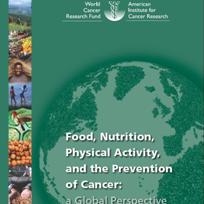Pork organisations question cancer research

Several pork and meat organisations worldwide have launched protests against a worldwide research study by the World Cancer Research Fund (WCRF).
Yesterday, the report, called Food, Nutrition, Physical Activity, and the Prevention of Cancer. A Global Perspective was launched. The report was presented after six years of research on 7,000 scientific publications globally.
Advice
As a result of the research, a panel of 21 experts drew up a list of measures explaining how to reduce the chances of being struck by cancer.
One of the panel’s recommendations was to cut down the consumption of ‘red meat’ (in this research defined as beef, pork, mutton or goat meat) to a maximum of 300 g weekly.
In addition, the panel recommends avoiding processed meats such as bacon, ham, sausage and lunchmeat.
National Pork Board
Ceci Snyder, a registered dietician and assistant vice president of consumer marketing for the Pork Checkoff said that “consumers should continue to feel good about consuming processed meat as part of a healthy, well-balanced diet.”
Her comments could be read in a press release sent out by the US National Pork Board in a reaction to the WCRF report. Snyder continued to say that “the reports’ findings on meat and cancer are misleading as the published data do not support the conclusions reached on the subject.”
“While a body of scientific literature exists exploring the potential relationship between meat and cancer, the results are not supportive of a consistent or causal link. In fact, this report primarily looks at epidemiological studies, which alone cannot show cause and effect, and it fails to highlight the significant inconsistencies of data around the subject of meat and cancer.”
Misleading
She continued, “stating a conclusive link is misleading and detracts from the significantly greater risks associated with lifestyle factors such as obesity and lack of physical activity.”
“Cancer prevention is not as simple as cutting out one food or eating more of another. The truth is that processed pork fits into established nutrition guidelines, including the US Dietary Guidelines, which recommend at least 30 minutes of physical activity and an average of 5.5 ounces from the Meat and Beans Group daily.”
Maryland
The NPB also quoted Dr Maureen Storey, of the University of Maryland’s Center for Food Nutrition, and Agriculture Policy. She said, “We have to keep this study in perspective. This report relies heavily on epidemiological studies, which cannot establish a cause and effect relationship. Epidemiological study findings are simply clues for further research.”
“This report shows stronger links between obesity and lack of physical activity. This is something consumers have to understand and act upon. It is important for everyone to remember to eat a variety of foods in moderation and to get more physical activity.”
Netherlands
According to the Dutch Product Boards for Livestock, Meat and Eggs (PVE), the relationship between colorectal cancer and red meat consumption is not irrevocably proven.
Spokesman Alfred van Lente said that the meat and livestock sector’s image could be harmed if the media portray the subject in an unbalanced way.
“There has been different studies in the last twenty years including one from the Dutch cancer fund and the research institute TNO. In all those years, no connection has been found between colorectal cancer and red meat.”
Most elaborate
The WCRF claimed it is the largest and most elaborate research on cancer prevention ever. The report analysed much research worldwide into the relationship of nutrition, lifestyle, weight, exercise and cancer.
More advice included avoiding drinks with a lot of sugar and fat-rich food. Reducing alcohol consumption is also suggested.
The National Pork Board published a Frequently Asked Questions list on the subject, which can be found here
Related websites:
• World Cancer Research Fund (WCRF)
• University of Maryland
• National Pork Board
• Dutch Product Board for Livestock, Meat and Eggs
• TNO
For the latest pig news, subscribe here











